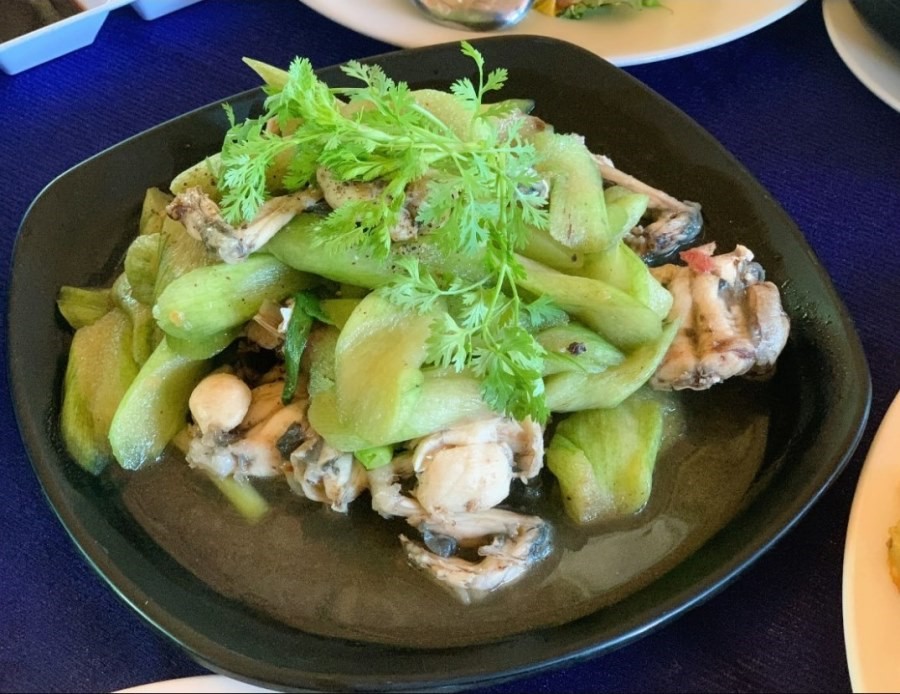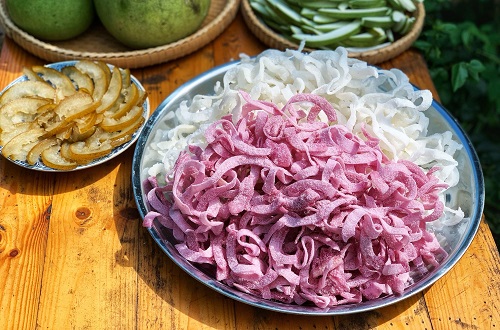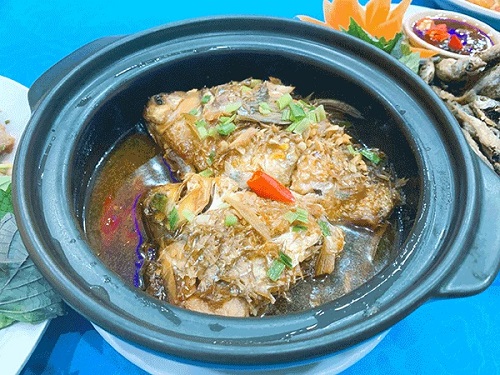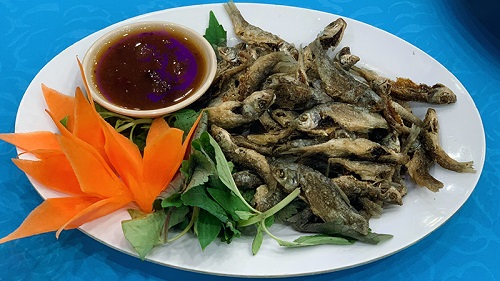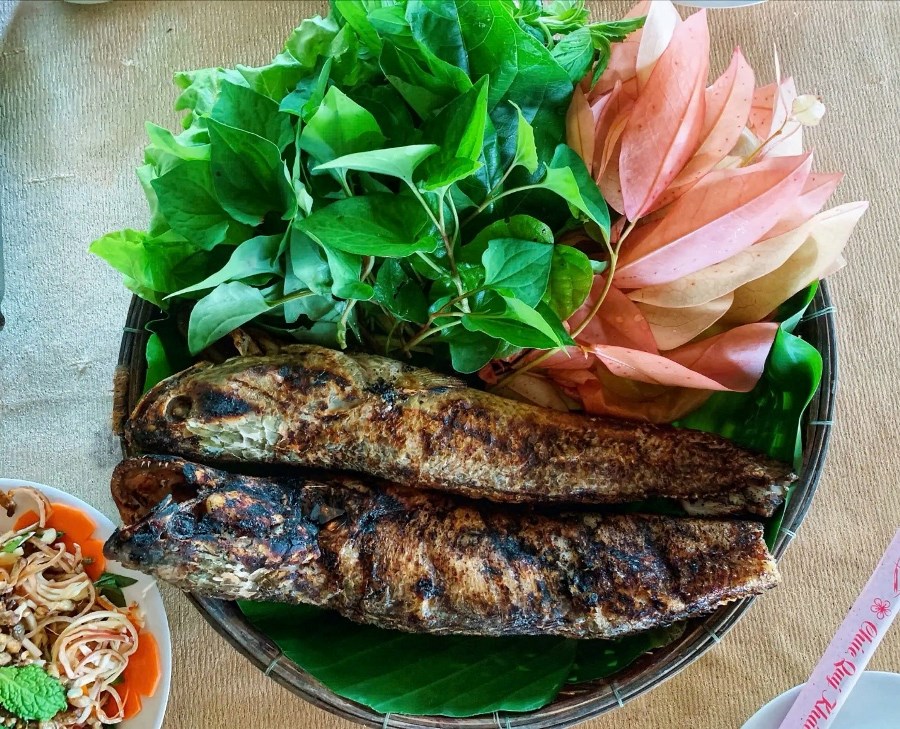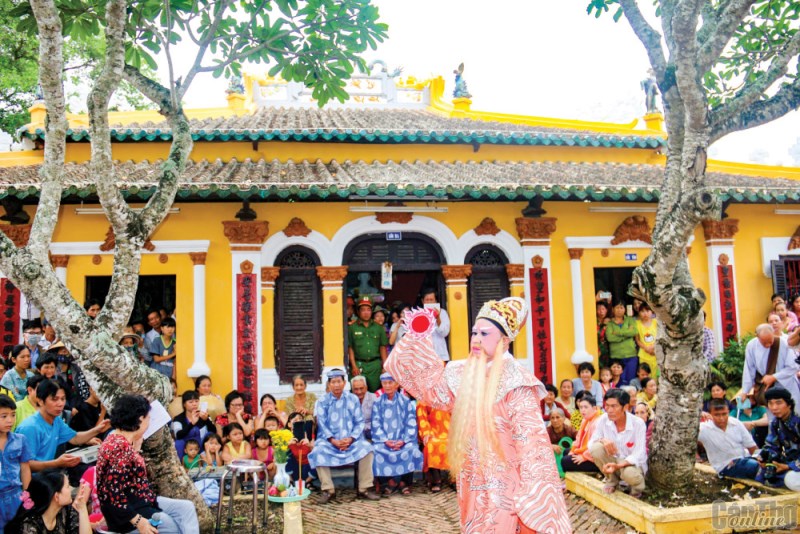
In the past, it was commonly thought that various forms of folk beliefs were products of a time when scientific knowledge was lacking. However, in today's reality, with rapid scientific development, annual folk festivals continue to exist and attract a large number of participants. This is because folk festivals, in general, still hold social value - creating psychological balance for individuals. This is: "A need that does not diminish for individuals in modern society. Faced with numerous burdens and uncertainties, modern humans find a sense of security in religion and faith. There, individuals feel reassured and protected. It cannot be denied that religious beliefs and faith contribute to regulating societal unrest, as with faith, extremism is excluded, and human behavior becomes more moderate. They fear the arrival of punishment"(1).
The majority of our country's folk festivals carry a societal value in the aspect of spreading the belief that living ethically, in accordance with societal norms, and aligning one's behaviors with morals, proper thoughts, and virtuous deeds will lead to blessings in the future. Due to this belief, individuals gradually distance themselves from wrongdoing. Alongside the avoidance of wrongdoing, people are motivated to do good because they believe that performing virtuous actions will bring about positive outcomes later on. Those who show compassion and assist others are considered to attain a peaceful and happy life. This contributes to the further development of social charity work.

Tong Phong Festival in Can Tho bears a distinct cultural imprint of the river and water region. Photo: Duy Khoi.
Another notable social value is demonstrated during festival seasons. Residents of the region collaborate to organize festivities. Each person contributes their efforts, whether through labor or offerings, all aimed at honoring the deities they revere, seeking their assistance for themselves and the community. Therefore, during ceremonies and festivals, people come together to fulfill their roles collectively. In some cases, despite discord in daily life, people readily set aside grievances during festivals, wholeheartedly focusing on communal matters. Hence, from a certain perspective, folk festivals serve as a mediator in society, strengthening communal ties. "In traditional festivals, the sense of community is manifested through shared fate and empathy. Shared fate is the bond among individuals within the community through the destiny of the community. It involves jointly venerating and worshiping a supernatural symbol that safeguards the survival of the community. It could be a celestial or human deity, a village deity, or the master of a craft, such as fishing. [...] Even the placement of a communal shrine in a traditional village has an impact on all members of the community"(2).
During festivals, there is a progression from shared fate to shared empathy through the various activities of the celebrations. Even within shared fate, there exists shared empathy, manifested as a sense of empathy toward spiritual activities and communal cultural practices. Festivals serve as almost the sole occasion to showcase community cultural activities, including dances, singing, ritualistic chants, traditional stage performances, competitive displays of martial prowess, folk performances, recreational activities, and the enjoyment of culturally significant foods. Throughout festival activities, everyone participates in performing, creating, enjoying, and indulging, fostering a sense of empathy among members and consistency in the transmission of cultural values across generations. Cultural activities within festivals, especially performances and traditional foods linked to deity worship rituals, are regarded as sanctified forms of entertainment and dining, generating empathy not only among individuals within the community but also between individuals and deities, striving for a state of harmony that humans consistently aspire to(3).
Therefore, folk festivals, beyond showcasing historical and cultural values, also exemplify the shared fate and shared empathy of a community. Furthermore, folk festivals contribute to the promotion of good deeds, the elimination of wrongdoings, and the propagation of social charitable efforts.
--------------
(1) Nguyen Thi Viet Huong (2015), "Vietnamese Ancestral Worship Through Festivals in Hanoi and Surrounding Areas," Labor Publishing House, Hanoi, pp. 251-252.
(2) Ngo Duc Thinh (1993), "Cultural Values of Traditional Festivals and the Needs of Modern Society," in the book "Traditional Festivals in Modern Social Life," Social Sciences Publishing House, Hanoi, p. 284.
(3) Ngo Duc Thinh (1993), sđd, p. 285.
Can Tho News - Translated by Hoang Dat








